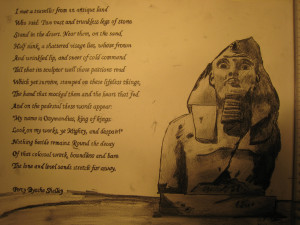

As it has been further pointed out in empirical findings, arrogance is inversely proportional to cognitive capacities and self-esteem (Bauer et al., 2008 Johnson et al., 2010). In other words, humble leaders outperform conceited ones. Paradoxically enough, humility in leadership, meaning the capacity to act with heightened self-awareness, exhibit emotional intelligence and take into consideration constructive criticism, has been proven to be a key leadership trait that could readily drive a positive outcome and long-term impact, as it has been correlated with elevated leadership competence (Yang et al., 2019). 22) and that "arrogance is engaging in behaviors intended to exaggerate a person’s sense of superiority by disparaging others" (Johnson et al., 2010), it comes as no surprise that many leaders act under the effect of arrogance. Given the fact that “the persona arrogant individuals attempt to project is one of omnipotence and invincibility” (Silverman et al., 2012, p. President Donald Trump, and the current Russian President Vladimir Putin are just a few individuals who could arguably be regarded as modern Ozymandias. Recent historical leading personas such as despotic WWII figures Adolf Hitler and Benito Mussolini, the most recent former U.S. Despite resonating with the modern political climate, the moral of the poem does not seem to echo in the ears of modern political leaders, who continue to shamelessly commit atrocities in pursuit of their imperialistic pretensions. The inscription of the forgotten crumbling statue constitutes an “achievement to bind up all these aspects of fragmentation and dislocation and give the conception of distance in the poem, an eerily contemporary message about power, history, and civilization” (Walker, 2007, p. In contrast to the ephemeral nature of political power, the message of the sonnet is timeless, transcending the centuries and tragically becoming pertinent to contemporary political discourses. The incarnation of evil shown in the figure of Ozymandias reinstates the idea that evil must be overthrown by itself”, indicating that tyranny breeds human nature's catastrophe (Zaman & Chakraborty, 2019, p. It becomes evident, then, that tyranny, the evil force in human nature breeds its own opposite, the demise". These “passions”, which once characterized the king, and "which yet survive" on “lifeless things” (i.e., the statue), show that such brutality and hollowness now only exist on the face of a broken statue (Shelley, 1977, lines 6-7). Ozymandias wears a “frown” along with a “sneer of cold command”, expressions indicative of his cruel condescension towards his subordinates, being himself “the hand that mocked them and the heart that fed” (Shelley, 1977, lines 5-8). The statue's expression divulges arrogance as the king's core character trait. Under this scope, the pedestal’s claim takes on new ironic dimensions, as one despairs not at the sight of Ozymandias’s legacy, but at how the ephemerality of time renders humanity, leaving Ozymandias’s words pitifully naïve and empty. When the words in the inscription of the statue “are savagely contradicted with the ruins and the location”, the whole poem becomes a mocking “comment on the transience of power” (Walker, 2007, p.

On the pedestal of the statue, a bombastic inscription describes Ozymandias as the “King of Kings” whose mighty achievements evoke a sense of sublime and despair in all who gaze upon them (Shelley, 1977, line 10). All that remains of the statue are two upright stone legs and a “shattered” head half-buried in the sand (Shelley, 1977, lines 2-3). The poem describes the decaying fragments of an ancient king’s statue in a vast desert. Shelley uses the title “Ozymandias” to make reference to the ancient Egyptian pharaoh Ramesses II, widely considered to be one of the most powerful pharaohs of Egypt, who was buried in the Valley of Kings.


 0 kommentar(er)
0 kommentar(er)
